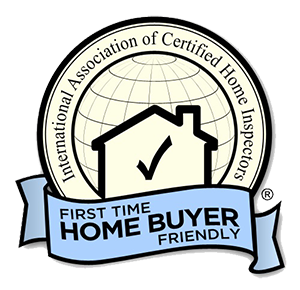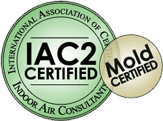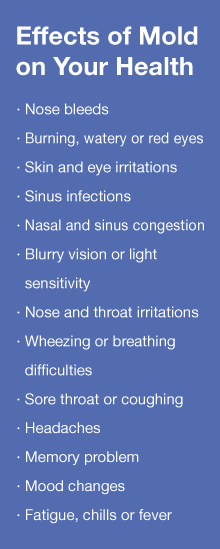

Contact Dave Ingram: 905-717-5867
What is Mold?
Mold is a type of fungus that can grow on fibers. Mold is most often associated with locations such as bathrooms, basements and attics because they tend to be more damp or musty. Mold travels through the air as tiny spores and then can land in wet areas where the spores can spread. If you see any kind of mold it is best to act quickly before it can spread to other areas. Where there is mold there is good indication of a moisture problem, which should be dealt with as soon as possible.
Every Home Should Be Tested For Mold
According to Dr. John D. Shane, Vice President of Laboratory services of PRO-LAB millions of homes across America have hidden water leaks that are promoting mold growth that can expose homeowners to mold spores. Mold has a potential to cause health problems like allergies, irritation (to lungs, eyes, skin, throat, nose) and are potentially toxic. Inhaling and touching mold spores may cause allergic reactions in sensitive individuals and normally healthy individuals may become sensitive to mold after exposure.
The EPA states that, "It is important to take precautions to limit your exposure to mold and mold spores. Avoid breathing in mold or mold spores". The EPA also recommends that if you suspect you have a hidden mold problem you should consider hiring an experienced professional to avoid exposure to potentially massive doses of mold spores.
Mold damages what it grows on. The longer it grows the more damage it can cause. If there is a mold problem in your home, you should clean up the mold promptly. Mold can be hidden, growing on the water from a hidden leak, and can develop into a potentially large problem if not caught in time.
Testing your home on a regular basis is a prudent way to prevent small problems from growing into a costly and unhealthy situation, and always avoid exposing yourself and others to mold.
Why you should call for a Mold & Air Quality evaluation
- Many people are adversly affected by Mold... and in many cases this is hidden and not easily seen.
- An inspection will evaluate your environment for sources of moisture and humidity, sometimes not easily detected without the proper equipment, and recommend ways to lower these which decreases the chance for further mold growth.
- An inspection and air testing can confirm the presence of elevated levels of mold spores which can be the cause of many health problems. This can be used to identify certain areas that need attention and further remediation.
- Should elevated levels be determined, these results can be used as a baseline for further testing after remediation and cleaning has been done to confirm a positive result.
- Information can be used in conjunction with your health care provider to formulate a plan for better health. Certain allergies can be lowered using specialized air filtration systems.
Call Dave now for Mold and Air Quality Testing at 905-717-5867

Free Home Maintenance Book and
Extra Time to Explain How Your Home Works


